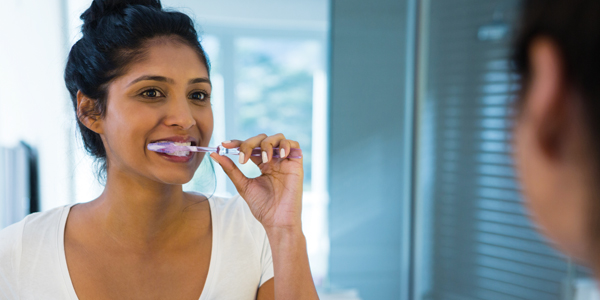1. See your dentist regularly
5 ways to manage oral health if you have ADHD
If you have attention-deficit/hyperactivity disorder (ADHD), you may be worrying more about focus and memory issues than your teeth. But there is a link between this condition and your oral health, and managing your ADHD can have a positive effect on your smile.
Let’s look at five things you can do when you have ADHD to help protect your teeth.
Studies show that children with ADHD are more likely to have higher numbers of diseased, missing and filled teeth than children without the condition. But this condition itself doesn’t harm a person’s teeth.
People with ADHD may also be more likely to have a diet high in sugar. Many medications that treat ADHD can cause dry mouth, creating a perfect breeding ground for bacteria and putting them at a higher risk for tooth decay and gum disease.
Talk to your dentist about any medication or supplements you take and whether you’re experiencing dry mouth symptoms. Your dentist can treat dry mouth, clean your teeth and look for cavities and evidence of gum disease.
People with ADHD are also more likely to experience stress, which may lead to teeth grinding (bruxism). If you’re grinding your teeth while you sleep, talk with your dentist about your options, which may include wearing a nightguard to protect your smile.
2. Establish a routine
According to one study, less than half of children with ADHD brushed their teeth every morning, compared with 82% of kids without the condition. Establishing routines like brushing and flossing can be challenging for people with ADHD, but they can be a helpful and necessary tool for making days run more smoothly, especially when it comes to dental hygiene.
If you have ADHD, set up reminders or notifications on your cellphone for daily and weekly tasks, including brushing and flossing. Keep your floss and toothbrush in the open to remind you of these regular tasks.
3. Consider your diet
Limiting simple carbohydrates and sugars and adding protein to your diet might improve your ADHD symptoms. This is because one of the brain chemicals responsible for attention and concentration, dopamine, is created from protein.
Cutting out the carbs, especially sugar, can improve your health in general. Eliminating carbs also helps support a healthy smile, since sugar contributes to the development of cavities.
Start your day with a healthy breakfast that’s high in protein. Not only will this help boost your energy for the day, but it can also help you stay alert and focused.
4. Plan your meals
Having ADHD could mean you’re more likely to react than plan. For example, have you ever come home at the end of the day only to realize you have nothing to prepare for dinner? If this happens, you may be tempted to resort to snacks and microwaveable meals, which are usually high in sugar and carbs.
Meal planning keeps you organized, and it’s also great for maintaining that balanced, healthy diet you need to manage ADHD. It will force you to keep a list of what to buy at the supermarket so you’re not impulse buying.
Keep a standing list of weekly grocery staples. Then, take a few minutes to add anything else you need before grocery shopping, based on the recipes you’ve chosen for the coming week’s lunches and dinners.
5. Get in exercise
Exercise is good for your body from head to toe. Not only does it build muscle, but it also causes the brain to release that all-important neurotransmitter, dopamine.
Exercising regularly is also great for your oral health. Taking even just a 15-minute walk can help curb sugar cravings and support a healthy immune system, which can help protect your smile.
How habits can change your life and your oral health
Living with ADHD is challenging, but the habits you create can be in effect for your entire life. And the good news is that following these simple habits and routines can improve your smile, your oral health and your overall health.
Are acidic foods hurting your teeth?
Acidic foods and drinks could be hurting your teeth, but with these tips, you can restore your mouth’s pH levels.
Oral health in faraway places
What is it like to get a toothache on a remote island? How do you deal with root canals in Antarctica?
Visit the dentist without leaving home
Virtual dentistry offers you flexibility and convenience like never before.











